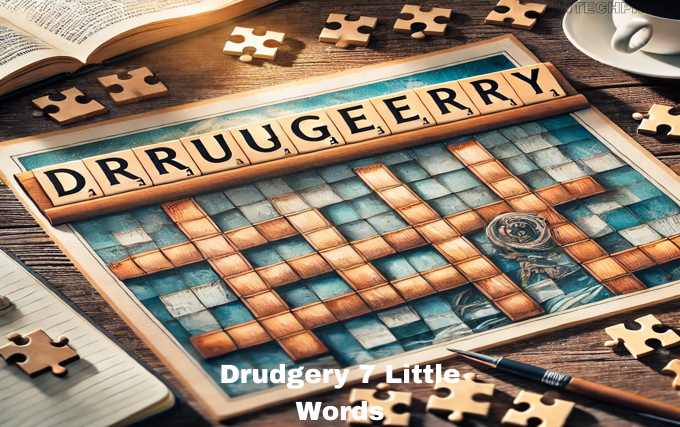Puzzle fans all across the world have fallen in love with the game “7 Little Words” because of its unique combination of difficulty and simplicity. In order to get seven answers, players must solve a succession of word clues in each problem, which combines deductive reasoning, vocabulary, and a dash of creativity. Because of its complexity and difficulty, the term “drudgery” frequently piques interest among the game’s many puzzles.
Understanding the Term “Drudgery”
“Drudgery” describes hard, boring, or boring work—tasks that frequently lack enthusiasm or originality. The word, which is synonymous with toil, grind, and regular labor, implies exerting oneself physically or mentally without receiving pleasure in the process. Its application in puzzles such as “7 Little Words” allows players to investigate its meaning while testing their ability to come up with original synonyms or associations that match the letters in the clue.
In “7 Little Words,” the task involves matching synonyms to the given tile arrangement in addition to just identifying them. The game is entertaining and instructive since it combines lexical and spatial reasoning.
Why “Drudgery” Stands Out in Puzzles
Words that conjure strong images or nuanced feelings are ideal for puzzles, and drudgery is a perfect example. It is an intriguing name to decode because of its unique letter composition and distinctive syllables. Because many players may identify with the sensation of monotonous or uninspired work in their everyday lives, it also strikes a personal chord with them.
Such related ideas are used by the game to keep players interested. When players come across “drudgery” in a hint, they are prompted to consider how they comprehend the term and its synonyms, which helps them expand their vocabulary.
Strategies to Solve “Drudgery” in “7 Little Words”
Expand Your Synonym Knowledge
In order to solve “drudgery” riddles, a strong grasp of synonyms is necessary. The terms “toil,” “labor,” “grind,” and “work” are frequently used in conjunction with this phrase. Getting to know these linked terms can help you rapidly identify possible answers.
Analyze the Puzzle Structure
The solutions to each “7 Little Words” problem require particular letter combinations and lengths. Examine the available letters and how they are arranged. If the puzzle has seven tiles and the word “drudgery” is used as a clue, for instance, think about if any synonyms suit the pattern.
Use Context Clues
Additional suggestions that point players in the direction of the right response are regularly offered by the game. Take note of the clue’s wording and the words that surround it in the puzzle. Depending on the context, you can determine if the response tends to use a literal synonym or a more abstract definition of “drudgery.”
Practice Deductive Reasoning
A key component of word puzzle solving is ruling out improbable possibilities. Put a possible solution aside and consider other options if it doesn’t match the provided tiles or the meaning of the clue. Elimination improves your ability to solve problems and raises your chances of success.
The Joy of Mastering Word Puzzles
The process of solving these riddles is everything but dull, even if the word “drudgery” connotes monotony and effort. Word games such as “7 Little Words” offer both cerebral stimulation and a sense of accomplishment. Every hint that is solved advances linguistic comprehension and sharpens cognitive skills like pattern identification and critical thinking.
Furthermore, talking about puzzles with friends or in online forums fosters a sense of community and increases social interaction. Players develop a sense of camaraderie through exchanging advice, acknowledging achievements, and even arguing about the subtleties of terminology like “drudgery.”
Broader Applications of Puzzle Skills
The abilities developed by puzzle-solving are not limited to the game. Academic, professional, and personal contexts all benefit greatly from increased vocabulary, sharper attention, and the capacity to address challenges methodically. Players learn to approach difficult tasks with patience and perseverance by coming across difficult terms like “drudgery”—qualities necessary for success in any area.
Conclusion
“Drudgery” from “7 Little Words” is a perfect example of both the difficulty of word puzzles and the beauty of language. Through the use of synonyms, clue analysis, and strategic thinking, players can overcome the difficulty and experience the joy of solving a puzzle. Beyond the game, the experience reaffirms the value of education and the strength of tenacity, turning even the most tiresome chores into chances for development and exploration.


